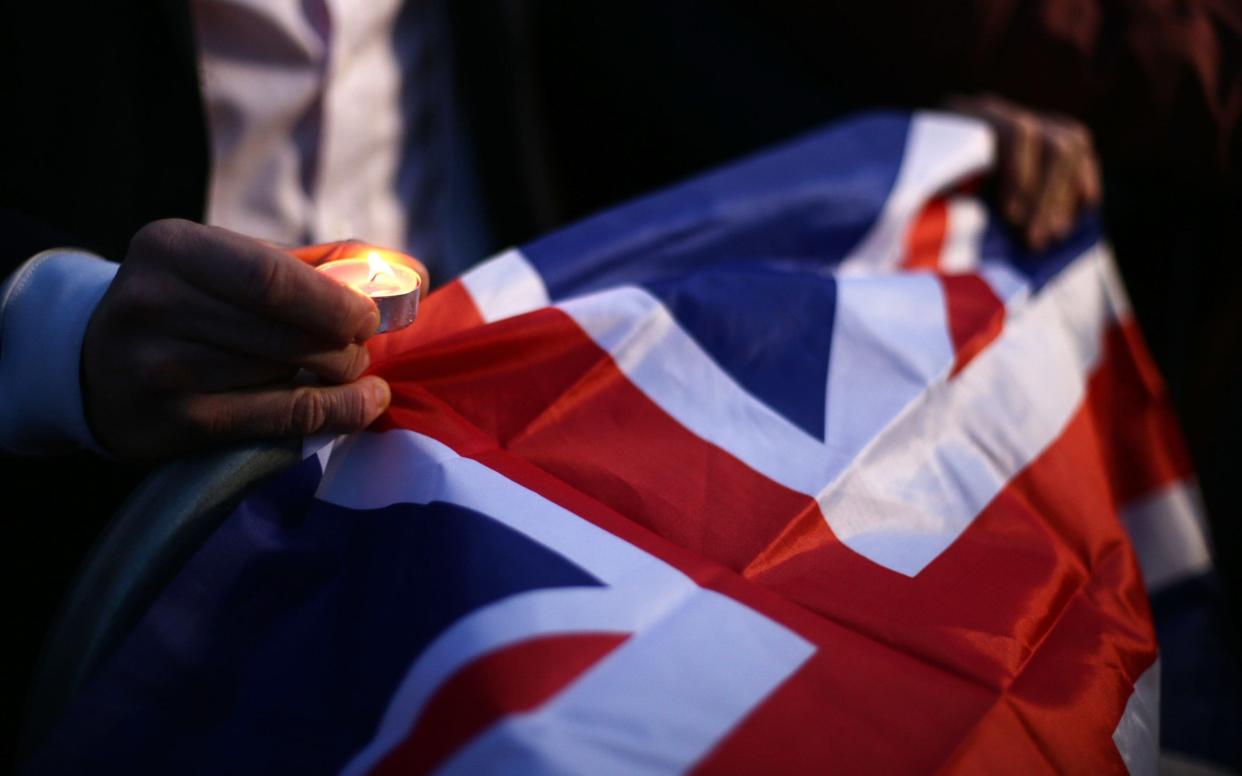We cannot let terrorism change our ways, but we must learn what lessons we can from each attack

With the naming of the victims of the Westminster terror attacks their scale becomes more human, no longer principally a symbolic affront to our democratic institutions but the tragic loss of someone’s sibling, parent or child.
Among the dead were a middle-aged American on holiday in London and a mother crossing Westminster Bridge to collect her children from school. They were killed along with Pc Keith Palmer, stabbed by the assailant in the precincts of Parliament. A score of people, many visiting London from overseas, were injured, some seriously. Their stories are testament to the personal cost of an atrocity whose political and security ramifications continue to be felt.
The morning after the IRA had tried to kill her at the Tory conference in Brighton in 1984, Margaret Thatcher declared that “all attempts to destroy democracy by terrorism will fail”. Thirty-three years on, another female Prime Minister delivered the same message of defiance in the House of Commons after the Palace of Westminster and its environs were targeted by a lone Islamist fanatic hell-bent on causing maximum carnage. Despite the mayhem of Wednesday afternoon, it was fitting that Parliament sat yesterday and did not give the terrorists the satisfaction of disrupting the proceedings of democracy.
Theresa May hit precisely the right note in her statement to MPs. “Yesterday an act of terrorism tried to silence our democracy, but today we meet as normal, as generations have done before us and as future generations will continue to do, to deliver a simple message: ‘We are not afraid and our resolve will never waver in the face of terrorism’.”
Inevitably, however, there are questions to be asked about what happened. Indeed, there is a gloomily familiar aftermath to any terrorist attack. Once the identity of the assailant is discovered he usually turns out to have been known to the police and security services, as was the case here with Khalid Masood, a 52-year-old Muslim born in Kent and living in Birmingham. He had previously been convicted for violent offences and was a known agitator but had not been considered a threat.
Should the police and MI5 have kept a closer eye on him? It is easy to say after the event but the counter-terrorism agencies need to prioritise the targets of their surveillance and sometimes they will miss the one individual intent on carrying out an atrocity. We should also remember that the security agencies have thwarted more than a dozen plots that could have resulted in even more carnage than that seen on Wednesday.
In a democracy it is unfortunately true that absolute security is impossible when people are prepared to murder and maim even when they know they are almost certain to die in the process. The killers of Fusilier Lee Rigby in Woolwich three years ago waited for the police to arrive and shoot them after stabbing the soldier in the street, though they survived to be tried and jailed.
Masood must have expected to be shot when he ran into New Palace Yard, though again questions are being asked over security at the entrance. Why, for instance, were Carriage Gates left open allowing the attacker to get through to kill a police officer before he was shot dead? Why, moreover, were some officers unarmed at the entrance to the Palace? One reason is that they need to engage with the public, something that is hard to do if they are dressed like paramilitaries. Understandably, some people say that all Westminster guards should be armed – but do we really want the seat of democracy to resemble a fortress?
The same goes for the arguments that our police should be routinely armed rather than just a number of specialist officers. This would be a mistake: we cannot allow terrorism to determine our policing policies unless a change in traditions becomes absolutely unavoidable. It hasn’t yet. Another certainty after most terror events is a claim by Isil – the Islamic State of Iraq and the Levant – that the attack was carried out on its behalf. They no longer need to give direct orders to would-be jihadists; they merely need to lend their stamp of approval after the event as “inspirers”.
Their warped, death-cult ideology is disseminated through the internet to impressionable, often disturbed, individuals who rationalise what they do by reference to this lunatic creed. Moreover, they can do this with low-tech weaponry – just a knife and a car – a rudimentary form of terrorism that was seen again in Antwerp on Thursday, where police intercepted a man trying to drive into a crowd.
We will learn more about Masood in the coming days and there will be demands for additional measures to stop him and his kind before they kill. But do we need any more counter-terror laws? Since the attacks on London in 2005 there has been legislation intended to combat hate speech and extremist rabble-rousing. Rather than bring forward more laws we need to use those we already possess. As Mrs May said, we must never waver in the face of terrorism. But we must always learn lessons after each incident to reduce the threat it poses.

 Yahoo News
Yahoo News 
